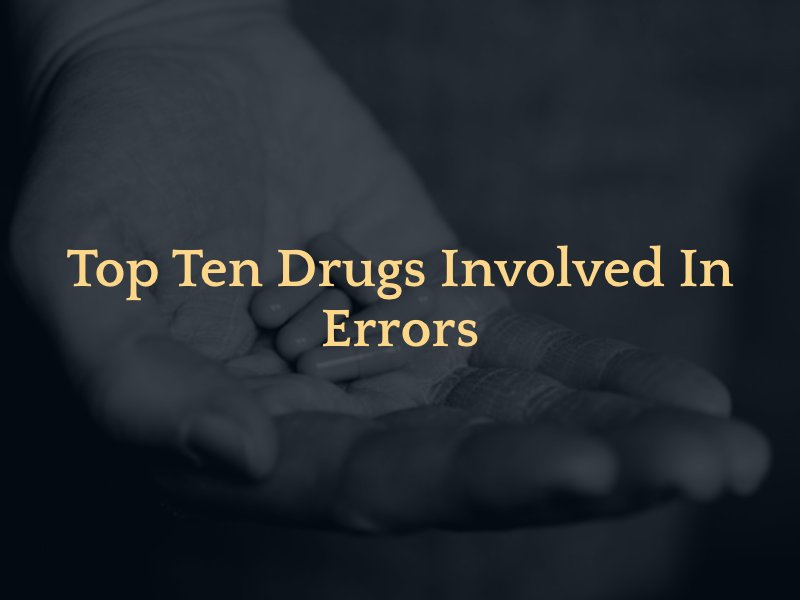
Medications are a key component of our healthcare system and have significantly extended life expectancies worldwide. However, they are also powerful drugs that can cause serious harm or even fatalities when mistakes occur. Medication mistakes are the most common cause of medical harm at 6.5 incidents per every 100 hospital admissions. Drug errors are often the subject of medical malpractice claims for compensation. Medication mistakes can happen in a variety of ways and involve any type of drug, but some medications are more often cited in medical malpractice claims for drug errors than others. In such cases, consulting a medication and prescription errors lawyer in Phoenix can help victims seek justice and compensation for the harm caused
What Drugs are Most Commonly Involved in Medication Mistakes?
A medication safety analysis study revealed the ten most common drugs involved in medication mistakes. The following drugs were responsible for the highest number of errors and adverse events requiring emergency treatment:
- Insulin
- Anticoagulants
- Amoxicillin
- Aspirin
- Trimethoprim-Sulfamethoxazole
- Hydrocodone/acetaminophen
- Ibuprophen
- Acetaminophen
- Cephalexin
- Penicillin
About 40% of adverse events involving the above medications are accidental overdoses. The medications on this list are also among the most commonly prescribed drugs, increasing the likelihood of errors occurring. Because the elderly are typically on regimens of multiple prescriptions, they are the most common victims of drug errors.
What Are the Most Common Medication Mistakes?
There are many points in the medical treatment process where medication mistakes may occur. The process involves a chain of medical providers, all tasked with prescribing the correct medication in the correct dosage to the right patient. Common medication mistakes include the following:
- Mistakes during ordering or prescribing: when an incorrect medication or wrong dosage is ordered
- Documentation mistakes: failure to obtain a complete medical history on a patient or failure to document drug administration to a patient
- Transcribing errors: illegible handwriting may be misinterpreted, orally given orders may be mistaken for a similar sounding medication, or the person transcribing a prescription may make an error such as transposing numbers in the dosage or directions
- Error in dispensing: these are mistakes that occur at the pharmacy while filling a prescriptions
- Mistakes during administering a medication: administering the wrong medication, the wrong dosage, or administering the medication to the wrong patient
- Patient monitoring mistakes: failing to follow up or properly oversee a patient’s response to a medication
The Lack of accurate or complete patient histories, poor communication with patients and between providers, distractions or disruptions, and failure to follow proper protocols are the most common reasons the above medication mistakes occur.
Understanding Liability in Prescription Drug Errors
When a doctor/patient relationship exists, the medical provider owes a duty of care to the patient to treat them at the level of care accepted by the medical community. If they fail in that duty due to negligence, such as making a medication mistake during prescribing or administering drugs, they breach that duty of care. Breaching the duty of care or failing to treat a patient the way another reasonable doctor would under the same circumstances makes the provider liable for the victim’s damages, such as additional medical expenses, lost wages, compensation for pain and suffering, or other consequences to the injury victim’s health. In such cases, a Phoenix medical malpractice attorney can help hold negligent providers accountable and pursue compensation for the harm caused.
